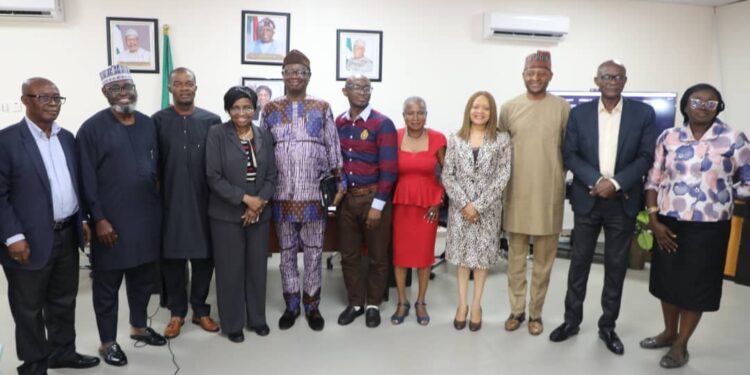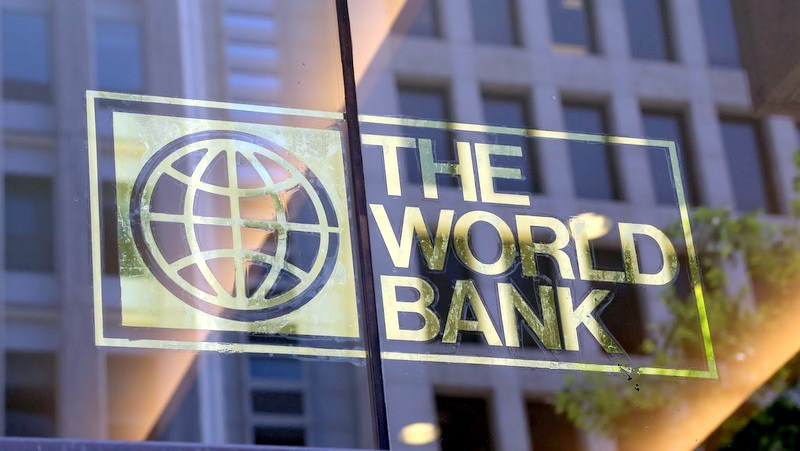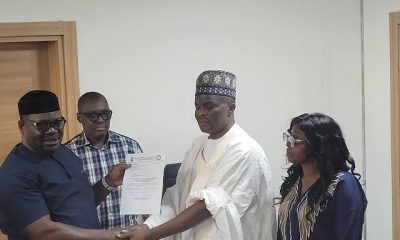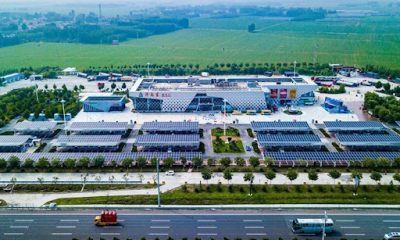Business
NAFDAC Partners with Exporters to Address Rejections of Nigerian Food Exports

In a bid to bolster Nigeria’s non-oil export sector, the National Agency for Food and Drug Administration and Control (NAFDAC) has formed a strategic alliance with key stakeholders to combat the recurring issue of Nigerian food exports being rejected in international markets.
This collaboration was highlighted in a statement by NAFDAC’s Resident Media Consultant, Mr. Olusayo Akintola, following a recent press briefing in Abuja. The partnership was established during a NAFDAC Export Stakeholder’s Interactive Session, which included discussions with the Cocoa Processors Association of Nigeria (COPAN), the Network of Practicing Non-Oil Exporters of Nigeria (NPNEN), as well as representatives from the Lagos Chamber of Commerce and Industry (LCCI) and the Nigerian Association of Chambers of Commerce, Industry, Mines, and Agriculture (NACCIMA).
Prof. Mojisola Adeyeye, the Director-General of NAFDAC, addressed concerns raised by cocoa industry stakeholders regarding draft cocoa regulations currently available for public review on the NAFDAC website. She emphasized that the session aimed to create a platform for meaningful dialogue on critical trade facilitation issues and to foster a unified approach among the agency and stakeholders within the export value chain.
Prof. Adeyeye stated that the primary objective of the meeting was to ensure that all parties involved in Nigeria’s international trade have a cohesive voice. She explained that regulations act as essential legal tools to uphold standards and ensure compliance across various sectors, including manufacturing, importation, exportation, distribution, and advertising.
Under her leadership, NAFDAC has updated and formalized 21 new regulations, covering various aspects of the agency’s functions, with export regulations being among those recently gazetted.
Expressing concern over the persistent issue of Nigerian products failing to meet international standards and facing rejection at global borders due to lack of NAFDAC certification, Prof. Adeyeye noted that some Nigerian products have been blacklisted by importing countries. This situation, she explained, stems from years of inadequate oversight and regulation of product quality and safety.
NAFDAC is committed to implementing both local and international regulatory interventions to prevent a complete ban on Nigerian food exports. The goal is to ensure that Nigerian products consistently meet international standards and avoid rejection in key global markets.
“The focus of today’s engagement is to address these concerns, bridge knowledge gaps, and build the necessary collaborations to elevate our regulated product exports in international trade,” Prof. Adeyeye stated.
She clarified that NAFDAC’s regulatory efforts are not intended as a revenue-generating activity but rather as a facilitative process aimed at streamlining trade and ensuring compliance with international standards, particularly in markets like the EU and the U.S.
Prof. Adeyeye assured stakeholders that companies with registered and compliant export products would face fewer regulatory inspections, with a more streamlined process based on compliance and risk levels.
Dr. Olusola Obajimu, Director-General of NACCIMA, expressed support for the proposed regulations, emphasizing their importance in achieving global standards and enhancing Nigeria’s export potential. He pledged continued collaboration with NAFDAC to boost the country’s foreign exchange earnings through effective non-oil export trade.
Business
Shehu Sani Criticizes World Bank Over Nigeria’s Economic Outlook

Former Kaduna Central Senator Shehu Sani has criticized the World Bank for worsening Nigeria’s economic difficulties. In a post shared on X, Sani accused the institution of projecting that Nigeria’s hardship would extend for another 15 years before the country could reach a better economic future. He questioned how many Nigerians would be left to enjoy that future, and how many African nations the World Bank has successfully helped to prosperity.
Sani’s remarks follow the World Bank’s latest *Africa’s Pulse* report, which forecasts that the Nigerian Naira will be among the worst-performing currencies in Sub-Saharan Africa by August 2024. The report placed the Naira’s decline alongside that of the Ethiopian Birr and South Sudanese Pound.
Business
HIG: Building Trust and Driving Innovation in Nigeria’s Insurance Market

Heirs Insurance Group (HIG) recently announced impressive financial results for the 2023 fiscal year, marking significant growth across all key metrics. The Group’s Gross Written Premium (GWP) surged by 59.3%, from N19.9 billion in 2022 to N31.7 billion in 2023. This remarkable performance underscores HIG’s resilience and operational efficiency, further solidifying its position as one of Nigeria’s fastest-growing insurance firms.
Heirs General Insurance (HGI) saw a 77% increase in GWP, reaching N12 billion in 2023. HGI’s profit before tax (PBT) also rose by 203%, reflecting the company’s effective cost management. Similarly, Heirs Life Assurance (HLA) reported a 71% GWP increase and a staggering 395% rise in PBT. Both companies have demonstrated a strong commitment to customer satisfaction, disbursing billions in claims.
Beyond financial success, HIG actively engages in corporate social responsibility (CSR) projects, contributing over N100 million to education, community development, and financial literacy. With plans for future expansion and innovation, HIG is poised to remain a key player in Nigeria’s evolving insurance market.
Business
Wike Urges Nigerians to Pay Taxes for Improved Social Services

Federal Capital Territory (FCT) Minister, Nyesom Wike, has called on Nigerians to fulfill their tax obligations, emphasizing that government revenue is essential for delivering social services. Wike made this appeal during the inaugural Abuja Business and Investment Summit, held in Abuja on Wednesday.
Speaking on the summit’s theme, “Optimising Investment Through Partnerships,” Wike stressed the importance of collaboration to generate investment opportunities. He dismissed the misconception that the government does not need revenue, explaining that taxes are crucial for funding public services.
Wike reiterated that both investors and the government must benefit from such partnerships, ensuring that both parties “go home smiling” through a fair exchange of services and taxes.
-

 Business17 hours ago
Business17 hours agoOkpella Monarch: Obaseki Ratified Kingmakers Decision, End 5years leadership Vacuum
-

 Banking13 hours ago
Banking13 hours agoFree Food Saga: Akpabio quoted out of context-CSO
-

 Foreign17 hours ago
Foreign17 hours agoSci-tech innovation fuels China’s high-quality development
-

 Entertainment9 hours ago
Entertainment9 hours agoDavido Declares ‘Timeless’ His Best Album
-

 Entertainment9 hours ago
Entertainment9 hours ago‘Adire’ Secures Four Nominations at the Best of Nollywood Awards
-

 Business10 hours ago
Business10 hours agoWike Urges Nigerians to Pay Taxes for Improved Social Services
-

 Foreign11 hours ago
Foreign11 hours agoQinling Mountains better safeguarded with comprehensive digital platform
-

 Foreign11 hours ago
Foreign11 hours agoExpressway service station in Shandong achieves carbon neutrality






